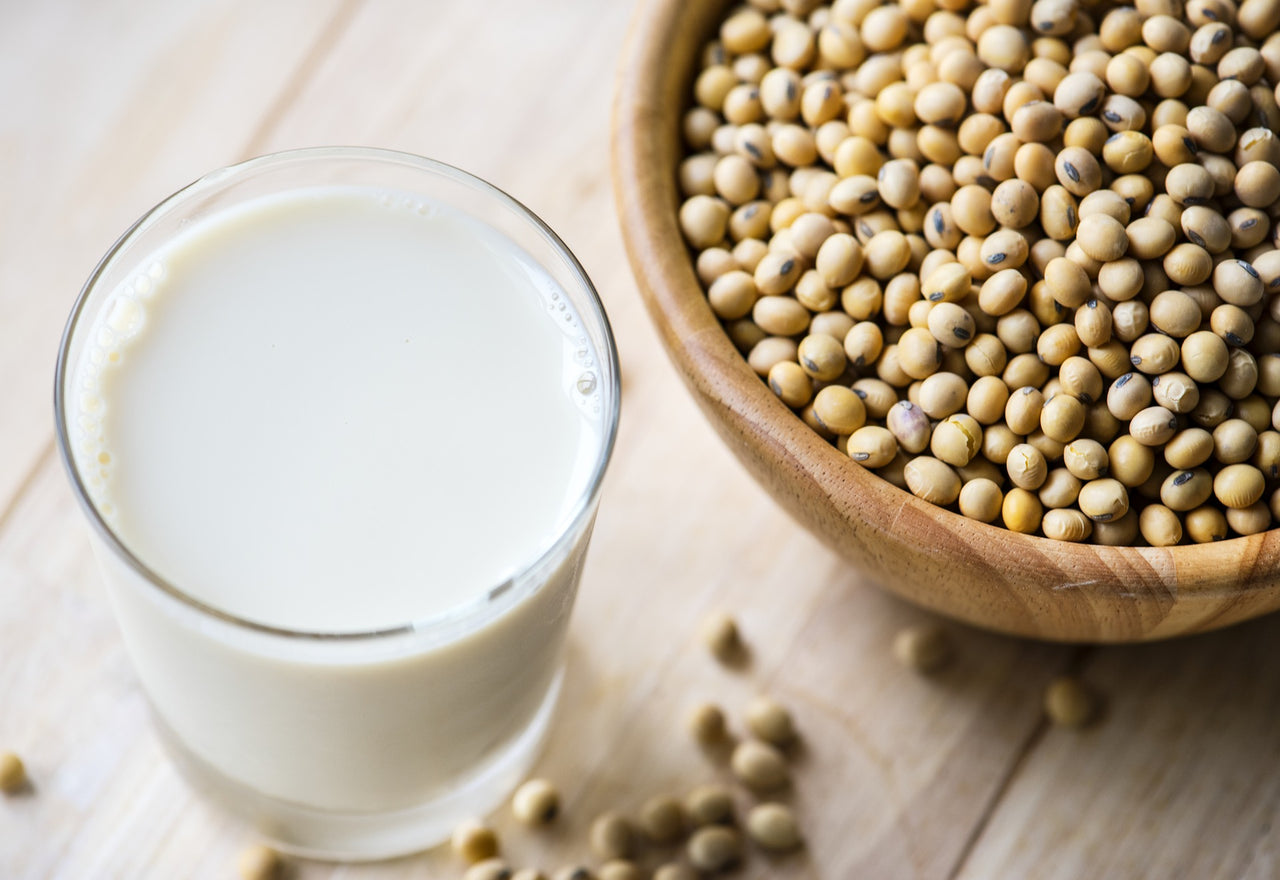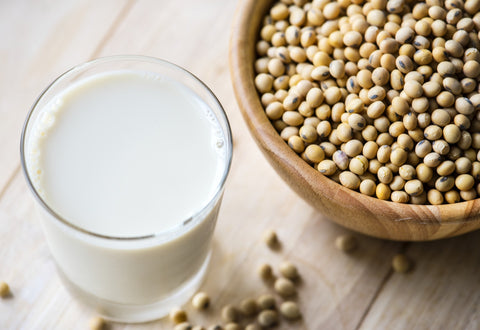
Can Soy Affect Fertility?

Soy foods are becoming increasingly popular all over the world due to mounting scientific evidence that they are a healthy, vegetarian form of protein.
Studies have also shown that soybeans contribute towards lower levels of cholesterol, less risk of heart disease, breast cancer, and osteoporosis and fewer menopausal symptoms.
Soy contains phytoestrogen, a plant-derived estrogen, known as isoflavones. Not all isoflavones work in the same manner. Some act in the same way that natural estrogens in the body do; others work as anti-estrogens that inhibit estrogen activity.
Soy and Menopause
Menopausal women and those who are at risk of breast cancer benefit from soy through isoflavones that act as a mild form of estrogen in the body or as anti-estrogens that lower the amount of estrogen in the body.
The Science Around Soy and Fertility
Studies are showing that some soy in your diet could help improve your chances of getting pregnant. Adding soy to your diet may help improve regular ovulation and menstrual cycles. It also appears that adding soy to your diet could also improve your chances of becoming pregnant if you are undergoing fertility treatments.
Increasing Menstrual Cycles
According to a study done in 1994 that was cited in the American Journal of Clinical Nutrition, high soy levels in a woman’s body can decrease FSH (a hormone which stimulates follicles) and LH (the luteinizing hormone) and can lengthen her menstrual cycle by an average of 2.5 days.
The same study reveals that most women should not worry, as the amount of soy needed to accomplish this would be the same as drinking three glasses of soymilk a day. However, most women that have multiple risk factors for infertility may be more sensitive to soy.
Soy and Sperm
Another study done in 2005 at King’s College in London showed that the likelihood of human sperm losing its acrosomes (caps which allow the sperm to penetrate the egg) increased threefold after exposure to the isoflavone genistein which is found in soy. It may be wise to avoid eating soy-based products if you are having a difficult time getting pregnant. Be sure to read your food labels.
Conflicting Results
The biggest problem faced by scientists and health experts when trying to ascertain whether soy has an effect on fertility is the number of conflicting results. Other studies have shown that the amount of soy ingested has little or no negative effect on fertility.
For instance, the American Journal of Clinical Nutrition mentions a study by the Department of Pharmacology and Toxicology, at the University of Alabama at Birmingham in 1998, where genistein was given to prepubescent rats.
The results proved that there were no changes to fertility in the animals. Most scientists who are not convinced that soy affects fertility often point to countries where large amounts of soy are ingested and the fertility rate is high, such as Asian nations that consume a lot of soy and have high fertility rates.
Ultimately, doctors are reluctant to prohibit soy intake because of all of its other health benefits. As an inexpensive and healthy source of protein, many medical practitioners, especially those in developing countries, would rather have patients consuming soy than suffering from malnutrition, which is far worse for fertility.
Soy In Your Diet
If you are experiencing fertility issues, try to limit the amount of soy in your diet so that you can rule out any possibilities that it is negatively affecting your fertility.
Limit your intake of tofu, soymilk, tempeh, TVP, and soy nuts. As it does not contain phytoestrogens, you can safely use soy sauce.
Tags:
Getting Pregnant
Quick links
Search
Contact Us
Shipping Information
Helpful Info
Terms of Service
Privacy Policy
Do not sell my personal information
Contact us
About us
BabyHopes.com is a family owned and operated business, opened in January 2001. We have been serving the trying to conceive community for over 20 years.

Leave a comment: